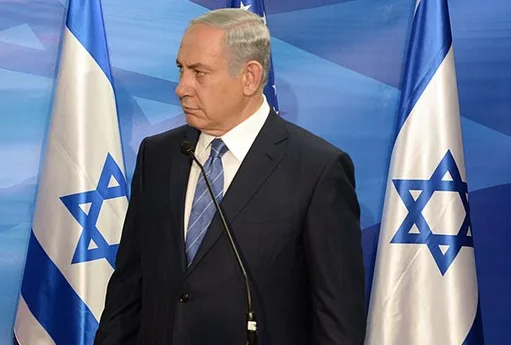Israeli Prime Minister Benjamin Netanyahu’s impassioned speech before a divided Congress highlights the US-Israel alliance but ignites significant backlash from lawmakers and protesters
In a dramatic and high-stakes address to a joint session of the US Congress on July 24, 2024, Israeli Prime Minister Benjamin Netanyahu championed the enduring alliance between Israel and the United States while casting aside any immediate hope for a ceasefire in the ongoing Gaza conflict. The speech, delivered in the House chamber, was met with a mix of support and protest, underscoring the contentious nature of the Israel-Gaza conflict.
Netanyahu’s speech was marked by fervent declarations of Israel’s resolve to achieve “total victory” in the war with Hamas, now stretching into its ninth month. “We’re not only protecting ourselves,” Netanyahu declared, “We’re protecting you … Our enemies are your enemies, our fight is your fight, and our victory will be your victory.” This rallying cry received a standing ovation from Republicans but faced sharp criticism from Democrats.
Embed from Getty ImagesThe address was marred by controversy as it occurred against the backdrop of significant protests outside the Capitol and a notable boycott by dozens of Democratic lawmakers. High-profile absentees included former House Speaker Nancy Pelosi, who expressed dismay over what she described as a disappointing presentation. Pelosi and other boycotting Democrats cited grave humanitarian concerns regarding the Gaza conflict, which has resulted in the deaths of an estimated 39,000 Palestinian civilians.
Outside the Capitol, thousands of demonstrators voiced their disapproval, with some chanting accusations of genocide against Netanyahu. Police responded with pepper spray and closed off streets as they managed the large crowd. Inside, the scene was equally charged, with some attendees wearing shirts calling for an immediate ceasefire. Rashida Tlaib, the only Palestinian American in Congress, prominently displayed a sign denouncing Netanyahu as a “war criminal” during the speech.
Netanyahu’s speech offered little new information regarding ceasefire negotiations or the release of Israeli hostages. Instead, he focused on defending Israel’s military actions and urged the US to accelerate military aid. “Give us the tools and we’ll get the job done faster,” he said, underscoring his commitment to continue the conflict despite international pressure for peace.
The Israeli Prime Minister did not elaborate on ceasefire talks, though he indicated ongoing efforts to secure the release of hostages taken by Hamas. A senior Biden administration official suggested that the upcoming meeting between Netanyahu and President Joe Biden would address the “serious implementation issues” remaining in the framework for a ceasefire.
Furthermore, Netanyahu rejected allegations that Israel was obstructing humanitarian aid to Gaza, insisting that his government’s focus was on the “demilitarization and deradicalization” of the region rather than its resettlement. His remarks included a pointed critique of anti-war protesters, whom he labelled as “Iran’s useful idiots,” further fueling tensions.
The speech highlighted the US’s polarized response to the Israel-Gaza conflict, reflecting deep divisions within American politics over foreign policy. With Netanyahu set to meet with Biden, Harris, and Trump in the coming days, the international diplomatic landscape continues to shift, as the US grapples with its role in the ongoing crisis.
Analysis:
Political: Netanyahu’s address underscored the deepening rift within US politics over foreign policy, particularly concerning Israel and Gaza. While Republicans showed strong support for Netanyahu’s stance, Democrats expressed significant discontent, reflecting broader debates about US involvement in the conflict and the humanitarian implications of Israel’s actions. The boycott by Democratic lawmakers and the protests outside the Capitol highlights the increasing polarization of US foreign policy debates.
Social: The strong reactions to Netanyahu’s speech illustrate the broader societal divisions over the Israel-Gaza conflict. The protests and criticisms from various groups reflect heightened sensitivities regarding human rights and international conflict. The speech has reignited discussions about the moral responsibilities of nations involved in foreign conflicts and their impact on civilian populations.
Racial: The presence of Rashida Tlaib and the protests by various activist groups emphasize the racial and ethnic dimensions of the debate. Tlaib’s actions and the criticisms from anti-war groups highlight the intersection of racial and political identities in the discourse surrounding the Gaza conflict. The reactions reveal how racial and ethnic perspectives can shape responses to international issues.
Gender: Gender dynamics are subtly present in the discourse, particularly in the context of leadership and representation. The absence of Vice-President Kamala Harris, who was engaged elsewhere, and the criticism from female lawmakers like Pelosi and Tlaib, reflect ongoing discussions about the roles and responses of women in political and international arenas.
Economic: Netanyahu’s call for increased US military aid to Israel raises questions about economic support for foreign conflicts and its implications for domestic priorities. The debate around military aid and its allocation reflects broader economic considerations, including the impact of foreign aid on national budgets and the potential trade-offs involved in supporting international allies.
